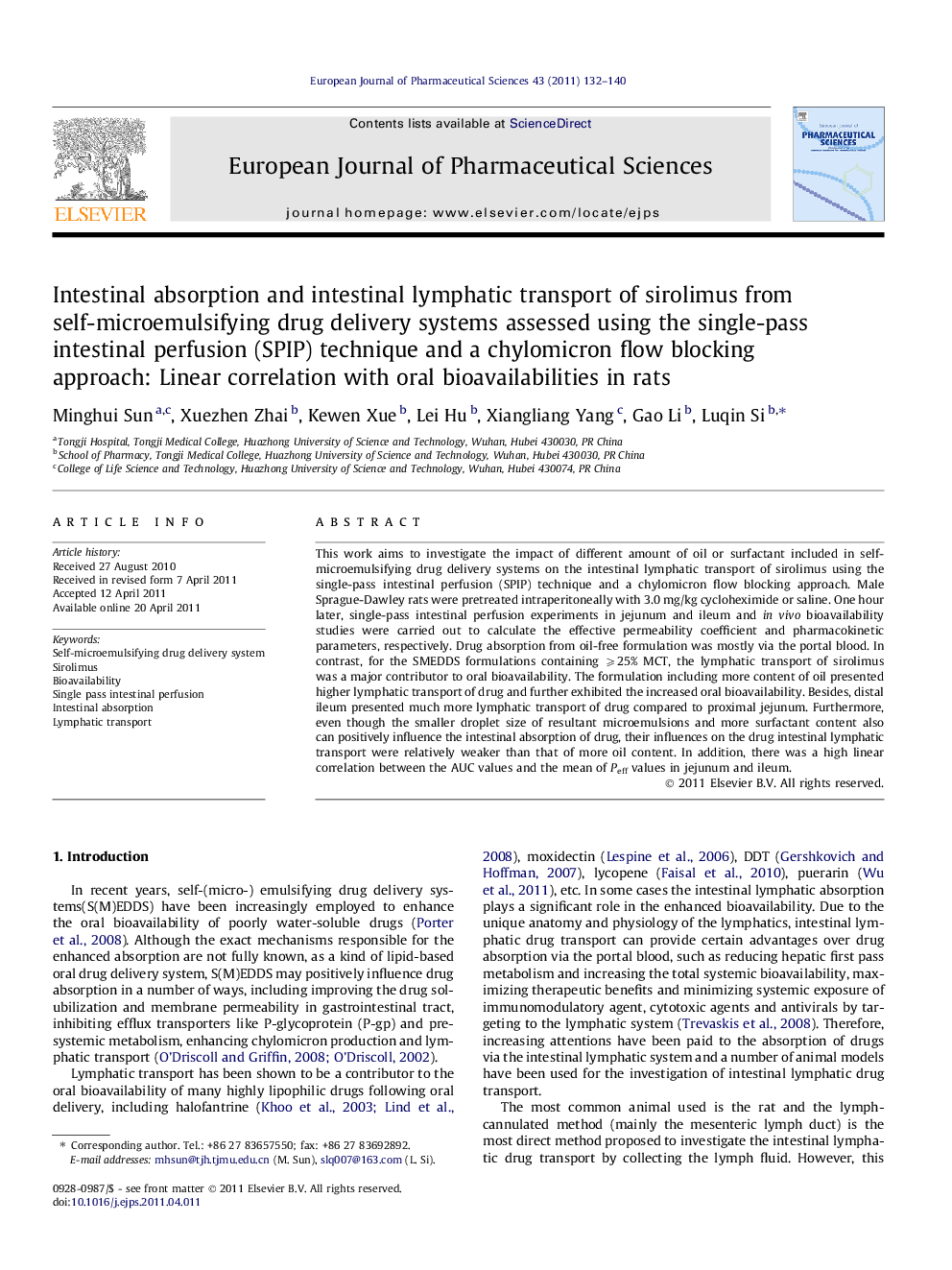| Article ID | Journal | Published Year | Pages | File Type |
|---|---|---|---|---|
| 2481787 | European Journal of Pharmaceutical Sciences | 2011 | 9 Pages |
This work aims to investigate the impact of different amount of oil or surfactant included in self-microemulsifying drug delivery systems on the intestinal lymphatic transport of sirolimus using the single-pass intestinal perfusion (SPIP) technique and a chylomicron flow blocking approach. Male Sprague-Dawley rats were pretreated intraperitoneally with 3.0 mg/kg cycloheximide or saline. One hour later, single-pass intestinal perfusion experiments in jejunum and ileum and in vivo bioavailability studies were carried out to calculate the effective permeability coefficient and pharmacokinetic parameters, respectively. Drug absorption from oil-free formulation was mostly via the portal blood. In contrast, for the SMEDDS formulations containing ⩾25% MCT, the lymphatic transport of sirolimus was a major contributor to oral bioavailability. The formulation including more content of oil presented higher lymphatic transport of drug and further exhibited the increased oral bioavailability. Besides, distal ileum presented much more lymphatic transport of drug compared to proximal jejunum. Furthermore, even though the smaller droplet size of resultant microemulsions and more surfactant content also can positively influence the intestinal absorption of drug, their influences on the drug intestinal lymphatic transport were relatively weaker than that of more oil content. In addition, there was a high linear correlation between the AUC values and the mean of Peff values in jejunum and ileum.
